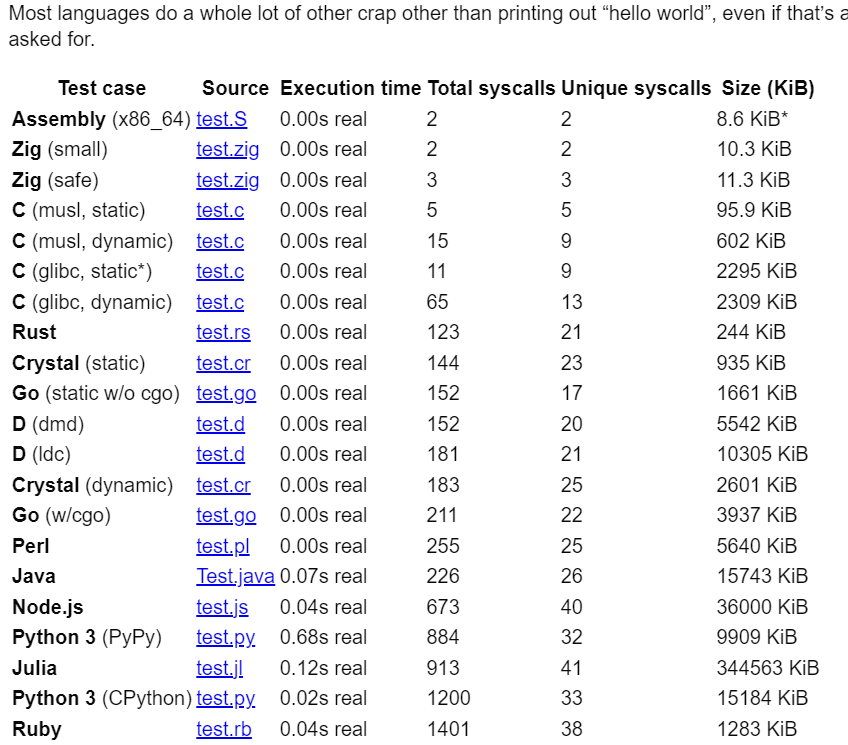May 08, 2023
TIL
re: Coding: Efficiency of Programming Languages
Sometimes I wonder how much faster our computers would be if folks were writing in lower level programming languages.
At what point does it become more economical to, instead of relying on Moore's Law to reduce the space between transistors ("2nm"), to instead refactor how code gets written and compiled.
What effect on electricity usage would that have for the trillions of line of code that are in production today?
I read this blog post that estimates the number of system calls a "hello world" program uses when executing, for various programming languages: https://drewdevault.com/2020/01/04/Slow.html
TLDR: there is nearly a 100x difference between the lowest level programming language and the highest, among those tested.
Ruby used ~1401 sys calls, and Assembly used 2.

Rust seems to be on the Pareto frontier as a balance between fast and high level.
re: "Liar's Dividend"
Lawyers provide liquidity in the marketplace of Bullshit.
"Liar's Dividend" is a term I expect we will hear more of in the future. TLDR: Its when real evidence is accused of being faked.
Per this article: https://www.npr.org/2023/05/08/1174132413/people-are-trying-to-claim-real-videos-are-deepfakes-the-courts-are-not-amused
The liar's dividend is a term coined by law professors Bobby Chesney and Danielle Citron in a 2018 paper laying out the challenges deepfakes present to privacy, democracy, and national security.
The idea is, as people become more aware of how easy it is to fake audio and video, bad actors can weaponize that skepticism.
"Put simply: a skeptical public will be primed to doubt the authenticity of real audio and video evidence," Chesney and Citron wrote.
"If lawyers start to get juries to demand all the bells and whistles to prove that a piece of evidence is not a fake...that is a way for lawyers and for their clients who are seeking to downplay or dismiss damning evidence against them to essentially run up the bills and make it more expensive, more time-consuming for the other side to get that damning piece of evidence admitted," she said.
^ eg: "The amount of energy needed to refute bullshit is an order of magnitude bigger than that needed to produce it." see: "Brandolini's Law" or the "Bullshit Asymmetry Principle"